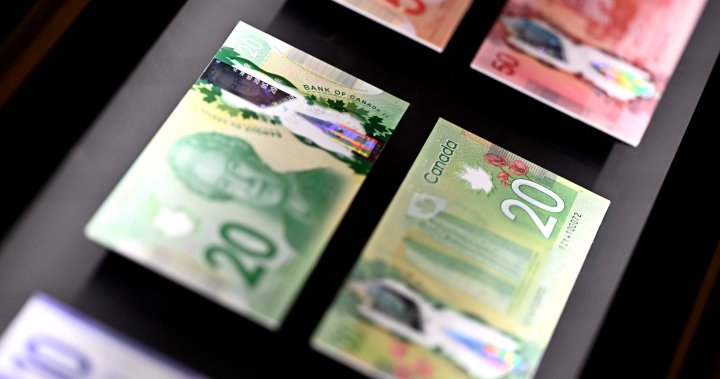Canada’s 100 highest-paid CEOs earned $13.2 million on average in 2023 from salaries, bonuses and other compensation, according to the Canadian Centre for Policy Alternatives.
It was the third biggest year for CEO pay since the CCPA began tracking the data in 2007, but a decline after 2021 and 2022 broke records.
“It’s still well up from where it has stood historically,” said David Macdonald, report author and senior economist at the CCPA.
Factors leading to the decline included lower profits in 2023 and workers making wage gains after the most recent bout of inflation, he said.
The CCPA calculates that by 10:54 a.m. on Jan. 2, the average CEO on the list had made $62,661 — the average annual income for a Canadian worker.
The gap between CEOs and regular workers has grown significantly, the report found. The 100 top-paid CEOs earned on average 210 times more than the average worker did in 2023, while in 1998, they earned 104 times more.

The highest-paid Canadian CEO in 2023 was Patrick Dovigi of GFL Environmental Inc., whose total compensation was $68.5 million.
He was followed by Joshua Kobza of Restaurant Brands International Inc. at $39.1 million, then R.M. Kruger of Suncor Energy Inc. at $36.8 million.
Salaries were generally not the main source of CEOs’ total compensation, with most of it coming instead from other forms of compensation like share-based awards and option-based awards.

Get weekly money news
Get expert insights, Q&A on markets, housing, inflation, and personal finance information delivered to you every Saturday.
“Salaries make up an ever smaller proportion of their overall compensation,” said Macdonald, adding that sometimes an executive will even take a salary of just a dollar — including Tobi Lütke of Shopify and Murray Edwards of Canadian Natural Resources Ltd., both on 2023’s list.
The average cash bonus for these CEOs was $2.3 million in 2023, the CCPA said, adding that though in theory bonuses are meant to be tied to the company’s performance, in reality bonuses tend to rise regardless of whether the company is having a good year.
The three main types of non-salary compensation are direct share awards — where a person is paid in shares instead of dollars — cash bonuses, and stock options, said Macdonald.
Most of the CEOs on the list are men, with just three women making the list — outnumbered by both CEOs named Scott (five) and Michael (four).
But the report isn’t all bad news, noted Macdonald — for example, workers’ pay went up substantially in 2023 as it caught up to inflation, he said. As well, those three women on the list made on average more than the Scotts and Michaels.

Since the CCPA has been tracking CEO pay, it’s also been tracking policy changes that could help narrow the gap between executives and regular workers.
One such change happened in 2024, when the inclusion rate for taxing capital gains was increased to more than 66 per cent (compared with 100 per cent for employment income) for gains above $250,000 for individuals, though this of course didn’t affect CEOs in 2023.
However, capital gains don’t apply until stocks are actually sold, noted Macdonald, meaning the tax revenue from the change is potential — some people might hold on to those stocks in the hopes the policy will change in the future.
Another such change happened in 2021, when the federal government capped the stock option tax deduction at $200,000 a year.
“We are seeing the impact on CEO pay” from that change, said Macdonald. “Stock options as a means of being paid have been cut in half for CEOs since 2021.”
Instead, there’s a “pretty decisive shift” toward direct share awards, he said.
“It used to be that the stock options … were, from a tax perspective, a better way to be paid.”

This year’s report also investigated the idea that companies need to offer high compensation to attract top CEOs.
“In the real world, it’s a much more mundane explanation,” said Macdonald.
He said in fact, more than three-quarters of the CEOs on the list got the job from within the company, working at their firms for an average of 21 years.
This “really reveals the bankruptcy of this idea that these insane pay levels are about competition,” said Macdonald.
The report recommends a “wealth tax” on Canadians worth more than $10 million, which it says could raise $32 billion a year. This is a much more direct approach than addressing stock options or capital gains, said Macdonald.
The report also recommends higher top marginal tax brackets.
“Historically speaking, Canada’s marginal tax rate for the richest is low,” the report said, with the top brackets within the 70 per cent range in the postwar years, compared with roughly 50 per cent now.
© 2025 The Canadian Press





